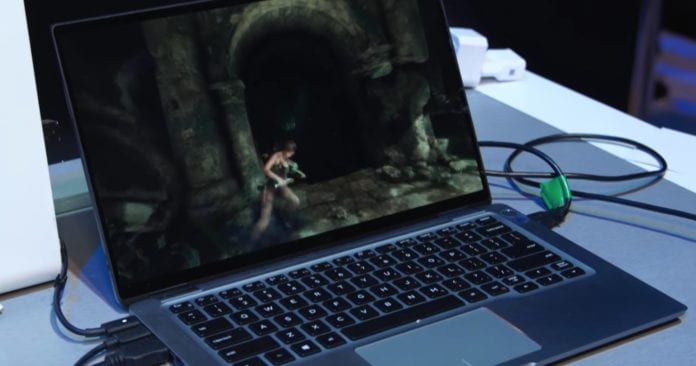Given huge mobile gaming market, 5G and cloud could provide a big boost to on-the-go gamers
Spurred by mega-hit games like Fortnite and PUBG, mobile gaming is quickly becoming a massive market that operators and the telecoms ecosystem at large can not only support but also monetize. According to analysis compiled by Nielson company SuperData, in 2018 mobile platform gaming hit a $63.1 billion market value. Given the throughput and latency needs of creating a mobile gaming experience comparable to a console-based experience, the combination of 5G and edge compute can support continued growth in this valuable segment.
During the the Consumer Electronics Show earlier this month in Las Vegas, Nevada, Intel demonstrated a cloud gaming experience running over a commercial 5G network set up inside the Las Vegas Convention Center.
Intel’s Jonathan Wood, senior director, Systems Architecture and Client Group, and general manager of business development for advanced technology, told RCR Wireless News, “We’re trying to show CES visitors what 5G is capable of. One of the great things we have in terms of new use cases is really providing high quality gaming on devices you would traditionally see on the high street.”
In the demo, a live 5G network connected to an Intel 2-in-1 to support Rise of the Tomb Raider. “We’re not talking high-end PCs here and gaming machines,” Wood said. “We’re talking very straight forward PCs. The way we do that is we that we’re actually bringing that compute closer to the device using low latency. We can rely on that computing to take place on the edge of the network, not necessarily on the device, and that provides fantastic graphics experience for our users. When we look at this cloud gaming use case where we’re having the gaming take place on an edge server, doing all the hard compute and hard processing, that makes life a lot easier for everybody.”
Here’s a video of the demo along with commentary from Wood.
Wood extended the paradigm of combining 5G and edge computing for cloud gaming to other use cases that would serve the interests of enterprise and industrial users, including facial recognition, AI and associated workflows and industrial robotics. “If we can do that at the edge of the network, that kind of changes the kind of devices we see. We can actually provide that compute very, very close to where the application is being consumed.”
From the operator perspective, The Verge recently broke a story that Verizon is testing a “Netflix-style cloud gaming service.” According to the report, “Verizon Gaming is already up and running on the Nvidia Shield set-top box and will, according to the company’s documentation, eventually make its way to Android smartphones.”
The Verge further reports: “For Verizon, cloud gaming could be a showcase for 5G broadband both in the home and on the go. The low latency and fast data speeds of 5G could solve for many of the hurdles that game streaming apps — such as Sony’s PlayStation Now — are dealing with today.”
“We work very closely with [the operator] ecosystem,” Wood said. “Intel actually provides an end-to-end capability. 5G is all about data. We’re working with them very closely to ensure they build out the capabilities within those networks so they can really take advantage of these new types of services. The wireless piece is a real significant game-changer with the low latency, but when you’re adding in all the other elements to this with the improvements and enhancements to compute, then you really have a complete end-to-end network, which is ready for primetime with 5G.”

